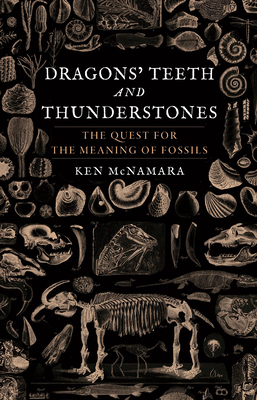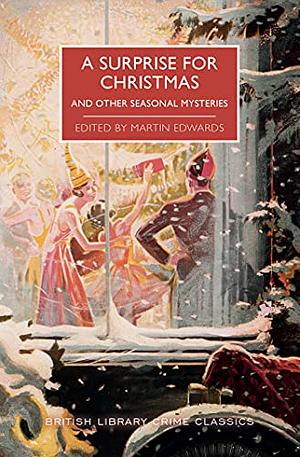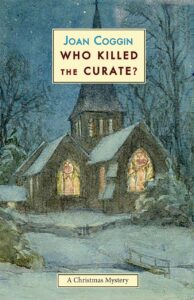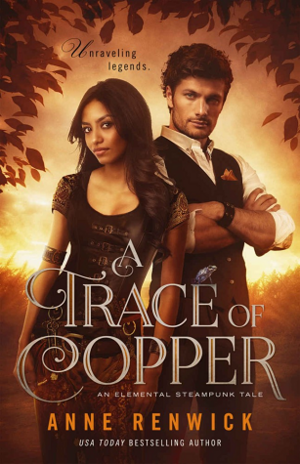Posted January 9, 2024 by Nicky in Reviews / 0 Comments

Clean Room: Waiting For the Stars to Fall
Genres: Graphic Novels,
Horror,
Science Fiction Pages: 144
Series: Clean Room #3 Rating: 
Synopsis: In this new installment of Gail Simone's Clean Room, go back to the beginning to learn how Astrid was first affected after her hospitalization...through the eyes of one who cannot see what she sees: her would-be assassin and brother, Peter Mueller.
Then, a young woman devastated by the violent loss of her husband finds comfort in Astrid Mueller's teachings, only to face the woman herself in the most nightmarish reaches of the Clean Room!
The third volume of Gail Simone’s Clean Room cleans everything up — more or less, though one shouldn’t get too strict about the definition of “clean up” here. The world’s definitely a mess at the end, and the book doesn’t chart the recovery, or even really the recovery of the main characters, just the very beginnings of it. Assuming that Chloe ever does recover.
There’s plenty of gore and creepiness, as you’d expect from this series, now including a creepy, creepy baby.
I would say that I didn’t quite understand Astrid’s behaviour throughout the book; part of it seemed inconsistent and left me with definite questions about what was going through her mind, which weren’t really answered. And it felt like things were resolved very quickly, as if the story had to be jammed into this final volume — it made Astrid’s solution feel a little too easy.
Still, a fun series, especially if you’re more into horror than I am!
Rating: 3/5
Tags: book reviews, books, comics, Gail Simone, Quinton Winter, Sanya Anwar, Walter Giovani
Posted January 8, 2024 by Nicky in Reviews / 0 Comments

Twilight Falls
Genres: Crime,
Fantasy,
Mystery Pages: 240
Series: Shady Hollow #4 Rating: 
Synopsis: It’s spring in Shady Hollow, and romance is in the air. Even reporter Vera Vixen is caught up in the season as her relationship with new police chief Orville Braun blossoms. But true love is not always smooth sailing, as two of the hollow’s young residents come to find. Jonah Atwater and Stasia von Beaverpelt find themselves battling their families in order to be together. And when Jonah’s father, Shelby, goes over the top of Twilight Falls, all signs point to Stasia being the murderer.
The evidence against Stasia appears overwhelming, and Orville arrests her. It looks like the case is closed, but Vera isn’t so sure. There are almost too many clues indicating Stasia is the killer, leading her to suspect someone is setting Stasia up. Besides, what about the mysterious ghostly creature skulking around town at night? Maybe he or she was involved? As Vera investigates further, her sleuthing puts her in direct opposition to Orville, and soon she’s stirred up a hornet’s nest of trouble.
Twilight Falls is the last of the Shady Hollow books by Juneau Black — for now. I’m sad, because it turned out to be exactly what I needed right now: quick reads that are light and sweet at heart, with characters that come alive just enough to carry the stories. Sometimes the characters or their relationships feel a little shallow, but sometimes it’s just a relief that the differences between Orville and Vera don’t lead to big schisms, and that there’s something gently forming between them, something that might last.
Once more, I found the resolution of the mystery really obvious: the hints come thick and fast, and it’s really the only thing that makes good sense of the evidence. There’s an attempt at a red herring, but it doesn’t work out too well (at least for my tastes).
It’s been nice to follow these books and realise that the characters are slowly changing, rather than it being a cosy little snowglobe where everything settles down a while after being shaken up. Esme and Stasia von Beaverpelt both grow and change in their own time, and even Orville’s learning that the Big Book of Policing may not contain all the answers (even if sometimes he finds it hard to accept Vera’s input).
As with the others, highly enjoyable — and I’ll get the new one when it comes out, like a shot.
Rating: 4/5
Tags: book reviews, books, crime, Juneau Black, mystery, SF/F
Posted January 7, 2024 by Nicky in Reviews / 0 Comments

Tickets for the Ark: From Wasps to Whales - How Do We Choose What to Save?
Genres: Non-fiction,
Science Pages: 256
Rating: 
Synopsis: Our planet hasn't seen the current rate of extinction since the demise of the dinosaurs 65 million years ago, and global conservation efforts are failing to halt this. As a society, we face choices which will determine the fate of Earth's estimated 8.7 million species, including humans. As wildlife declines, conservation needs to make trade-offs. But what should we conserve and why?
Are we wrong to love bees and hate wasps? Are native species more valuable than newcomers (aka invasives)? Should some animals be culled to protect others, and what do we want the 'natural world' to look like? There are many surprising answers in Rebecca Nesbit's lively, stimulating book, which sows the seeds of a debate we urgently need to have.
Rebecca Nesbit’s Tickets for the Ark attempts to be somewhat nuanced about the topic of conservation, and to dig into why we want to save the creatures we want to save — and why we might want to save other animals instead. It’s not always obvious that we might want to save parasites, but we know little about some parasites, and little about what advantages they might offer taken as part of a whole ecosystem. Nesbit also talks about what we define as “wild” vs “domesticated”, how our responsibilities differ between the two, and how much responsibility we might want to or need to take for animals in rewilding projects.
That’s just a taster of the various dilemmas she serves up, but hopefully it gives an idea of the gist of the book. I appreciate that she recognises the potential role of animals that people don’t like — wasps, including parasitic wasps, and other ectoparasites like lice — and the issue that it’s very difficult to decide what counts as a “native” plant. All cut-offs are artificial, and do we really want to roll back time? Maybe we need a new normal?
None of it came as a surprise to me, since it’s a topic I’ve thought about a fair bit, but it’s an attempt at nuance in a world that sometimes lacks it, and I appreciated that. It was a slower read than I expected, but full of helpful context that can get a layperson properly interested and involved in the hypotheticals.
Rating: 3/5
Tags: book reviews, books, non-fiction, Rebecca Nesbit, science
Posted January 6, 2024 by Nicky in Reviews / 4 Comments

Dragons' Teeth and Thunderstones: The Quest for the Meaning of Fossils
Genres: History,
Non-fiction,
Science Pages: 288
Rating: 
Synopsis: For at least half a million years, people have been doing some very strange things with fossils. Long before a few seventeenth-century minds started to decipher their true, organic nature, fossils had been eaten, dropped in goblets of wine, buried with the dead, and adorned bodies. What triggered such curious behavior was the belief that some fossils could cure illness, protect against being poisoned, ease the passage into the afterlife, ward off evil spirits, and even kill those who were just plain annoying. But above all, to our early prehistoric ancestors, fossils were the very stuff of artistic inspiration.
Drawing on archaeology, mythology, and folklore, Ken McNamara takes us on a journey through prehistory with these curious stones, and he explores humankind's unending quest for the meaning of fossils.
Ken McNamara’s Dragons’ Teeth and Thunderstones is basically a history of how people have related to and understood fossils, how they’ve used them and appreciated them, and the things we’ve believed about them. He discusses a lot of different superstitions, and bits of evidence about how ancient peoples thought about fossils; I’m not always convinced, particularly about the one where the dead five-armed starfish-like creature looks like a human, especially with a hole between its legs. Seems like wishful thinking to me.
In the end it’s an interesting survey, best when McNamara keeps his theories out of it (I’m not sure how wide the agreement is about things like “obviously that was viewed as a human”, but it doesn’t convince me anyway). It has some illustrations so you can see what he’s referring to, though they’re in black and white, so can be a little muddy.
Adrienne Mayor’s books might also be interesting to people who are tantalised by these ideas, particularly The First Fossil Hunters. McNamara spends a lot of time looking a bit further back in the past, beyond the point where we can refer to literature with our questions.
Rating: 2/5
Tags: book reviews, books, history, Ken McNamara, non-fiction, science
Posted January 5, 2024 by Nicky in Reviews / 2 Comments

Daniel Cabot Puts Down Roots
Genres: Romance Pages: 244
Rating: 
Synopsis: Daniel Cabot doesn’t really know what he’s doing with his life. He’s lost faith in himself, his future, and maybe the world. The only things he knows that he cares about are the garden in the empty lot next to his crumbling East Village apartment building and his best friend.
Alex Savchenko has always known that he’s…difficult. Prickly, maybe, if you’re feeling generous. But maybe that’s the kind of personality it takes to start a low-income pediatrics clinic in one of Manhattan’s most troubled neighborhoods. When Daniel stumbles into his life, Alex doesn’t expect him to stay—most people don’t. And when Alex develops useless, inconvenient feelings for his new friend, he does what he’s always done, and tells himself that he isn’t feeling anything at all.
Daniel, though, has always worn his heart on his sleeve, and he isn’t stopping now.
Sometimes when things seem to be falling apart, it means there’s room for something incredible to grow.
Cat Sebastian’s Cabot books have proved a favourite lately, but I think Daniel Cabot Puts Down Roots might be my favourite of the bunch.
Daniel and Alex are both far from perfect humans, and their friendship might not always make sense to outsiders — Daniel spends a lot of time handling Alex, reading his mood and figuring out what he needs, whether it’s space for himself or a steady routine or a little extra companionship. That’s part of why their friendship works: Alex isn’t neurotypical, and a lot of things don’t make sense to him, and he finds most people impossible, but Daniel’s found a way to work with that, and the love between them is always there, even before they start moving toward a romantic relationship. Everyone takes them for a couple, and they more or less are.
The book follows their step-by-step evolution toward being the kind of couple who have sex, the kind of couple who plan based on knowing the other is there and is always going to be there, and that’s a huge deal for both of them. There’s lots of communication and an acknowledgement that their relationship doesn’t have to look like that of other people in order to be valid and important and absolutely central to them.
If I have one criticism, it’s that we spend an awful lot of the book on Alex’s needs. Here and there we see acknowledgements of Daniel’s needs, but it’s not so explicitly stated, and that can leave it feeling a touch imbalanced. It’s plain that Daniel doesn’t mind and he considers his needs to be met, but it still left me wondering a little.
Rating: 4/5
Tags: book reviews, books, Cat Sebastian, queer fiction, romance
Posted January 4, 2024 by Nicky in Reviews / 0 Comments

An Unnatural Life
Genres: Science Fiction Pages: 192
Rating: 
Synopsis: The cybernetic organism known as 812-3 is in prison, convicted of murdering a human worker but he claims that he did not do it. With the evidence stacked against him, his lawyer, Aiya Ritsehrer, must determine grounds for an appeal and uncover the true facts of the case.
But with artificial life-forms having only recently been awarded legal rights on Earth, the military complex on Europa is resistant to the implementation of these same rights on the Jovian moon.
Aiya must battle against her own prejudices and that of her new paymasters, to secure a fair trial for her charge, while navigating her own interpersonal drama, before it's too late.
I received a copy of this book for free in exchange for an honest review. This does not affect my opinion of the book or the content of my review.
It’d be easy to dismiss Erin K. Wagner’s An Unnatural Life as being a simple allegory for racism, and there are definitely elements there drawn a bit too straightforwardly from that (invented slurs such as “robot-lover” are a bit obvious, as is the mob that gathers outside Aiya’s home when she chooses to be 812-3’s legal representative). But I think it’s a little more than that, because we also have the issues of free will and responsibility, of whether 812-3 was in love with a human or whether he was compelled/manipulated to believe he was, of whether his actions were his own or compelled, and where the difference comes in.
The author talks on her website about being interested in “how the human responds to the nonhuman, artificial, supernatural, or otherwise”, and this book comes directly out of that. It’s hardly a mere retelling of To Kill a Mockingbird set in space, because Aiya’s far from being Atticus for quite a few reasons — and there is no wide-eyed innocent Scout being disillusioned here.
It ends unsettlingly, unresolved, in a way that’s sticking with me. It does feel like the journal inserts weren’t quite tied in with the rest — thematically they made sense, but it feels like a whole story going on there that didn’t quite join up. The mood is melancholy, in the midst of what could’ve been a triumph. I definitely found it an interesting read.
Rating: 3/5
Tags: book reviews, books, Erin K. Wagner, SF/F
Posted January 3, 2024 by Nicky in Reviews / 0 Comments

Final Fantasy XIV Heavensward: The Art of Ishgard - Stone and Steel
Genres: Game,
Non-fiction Pages: 304
Rating: 
Synopsis: A brand-new FINAL FANTASY XIV official art book showcasing the artwork that became the foundation for the aesthetics of the “Heavensward” expansion.
This artbook is totally gorgeous, as you’d expect, and it also comes with little notes from the artists about the pieces — or sometimes a comment here and there from Yoshi-P! If you’re a fan of the game design and you’re interested in a closer look, then this is definitely a must.
There’s a range of stuff here; full-colour pics from later stages of development, along with some of the concept sketches. Some things have more notes than others, taking apart the image a little to demonstrate some of the choices made or the requirements given; there’s quite a bit showing the process of design for the Au-Ra, for example.
It also comes with the code for a Wind-Up Relm minion. Yes, I claimed mine, so no, it’s not for sale. ^^;
Rating: 5/5
Tags: book reviews, books, Final Fantasy XIV
Posted January 2, 2024 by Nicky in Reviews / 0 Comments

A Surprise for Christmas and Other Seasonal Mysteries
Genres: Crime,
Mystery,
Short Stories Pages: 304
Series: British Library Crime Classics Rating: 
Synopsis: A Postman murdered while delivering cards on Christmas morning. A Christmas pine growing over a forgotten homicide. A Yuletide heist gone horribly wrong. When there's as much murder as magic in the air and the facts seem to point to the impossible, it's up to the detective’s trained eye to unwrap the clues and neatly tie together an explanation (preferably with a bow on top).
Martin Edwards has once again gathered the best of these seasonal stories into a stellar anthology brimming with rare tales, fresh as fallen snow, and classics from the likes of Julian Symons, Margery Allingham, Anthony Gilbert and Cyril Hare. A most welcome surprise indeed, and perfect to be shared between super-sleuths by the fire on a cold winter's night.
A Surprise for Christmas is the 2020 collection of short crime/mystery stories based around Christmas-time from the British Library Crime Classics series, edited as always by Martin Edwards. It’s a surprisingly star-studded volume, including stories from Ngaio Marsh and Margery Allingham, along with other standbys that appear more often in the anthologies of this series (like Carter Dickson, AKA John Dickson Carr).
It’s a strong enough collection, much in the same vein as the others, without being surprising — after all, that’s somewhat part of the point in crime/mystery fiction of this general period. It usually isn’t too surprising, though here and there an author like Julian Symons is included (as in this one), someone who tends more toward a psychological story.
Oddly enough, the Symons story included here is a repeat with a different title, previously included in The Christmas Card Crime, from 2018. Weird that no one realised that. The other stories are all new to the series so far as I can tell, though I haven’t read Crimson Snow.
“The Turn-Again Bell”, the final story, has quite the atmosphere, and would’ve been my favourite of the book, except that it seems a little trite in how it all wraps up. It doesn’t feel quite at home with the other stories in this volume, to be honest, being less a crime/mystery, and more definitively a Christmas story. Maybe that’s just me.
Rating: 3/5
Tags: book reviews, books, British Library Crime Classics, crime, Martin Edwards, mystery, short stories
Posted January 1, 2024 by Nicky in Reviews / 2 Comments

Who Killed The Curate?
Genres: Crime,
Mystery Pages: 228
Rating: 
Synopsis: Meet Lady Lupin Lorimer Hastings, the young, lovely, scatterbrained and kind-hearted newlywed wife to Andrew, the vicar of St Marks parish in Glanville, Sussex. When it comes to matters clerical, she is rather at sea. Nevertheless, she is determined to make her husband proud of her.... or at least not to embarrass him too badly.
When, on Christmas Eve, Andrew's unpopular, blackmailing curate gets himself murdered, things all get a bit (hilariously) overwhelming for poor out-of-her-depth Lady Lupin:
"Who was in your sitting room during that interval? Say four-thirty on Tuesday, and ten or eleven yesterday morning?"
"If you had ever lived in a vicarage you wouldn't ask questions like that; people just walk in and out all day long. When Andrew asked me to marry him, he said he was afraid I should find it very quiet here, and what he meant I can't imagine! If I wanted quiet I'd rather retire to the Tower of Babel with a saxophone."
Lupin enlists old society pals Duds and Tommy Lethbridge, as well as Andrew's nephew, a British secret service agent, to get at the truth. Lupin refuses to believe that Diana Lloyd, 38-year-old author of the children's detective stories, could've done the deed and casts her net over the other parishioners. But all the suspects seem so nice - very much more so than the victim.
I was hoping to enjoy Who Killed The Curate?, which is a Christmas mystery by Joan Coggin reissued by Galileo Publishers. I’d hoped to find some more fun classic crime fiction by checking out the books reissued by them, but in this one at least I was pretty disappointed.
It starts out hopefully, with a witty playfulness about it, but it quickly becomes apparent that it’s all going to be that way — and that in part it’s going to be that way at the expense of the characters, particularly Lupin, the female lead. She’s quite silly, gets herself in ridiculous and unlikely tangles, and for someone with second-hand embarrassment issues, it was absolutely excruciating. Would you really get godfather and grandfather mixed up, so totally you don’t actually know the difference between them? And not just that, but also guys and guides? And just making totally inappropriate conversation everywhere —
Aaargh!
All of that made it decidedly unenjoyable to me, unfortunately. If you have a bit of a thicker skin you might make more of it, but I just couldn’t get myself past Lupin in order to enjoy anything else.
Rating: 1/5
Tags: book reviews, books, crime, Joan Coggin, mystery
Posted December 31, 2023 by Nicky in Reviews / 0 Comments

A Trace of Copper
Genres: Fantasy,
Historical Fiction,
Science Fiction Pages: 115
Rating: 
Synopsis: New recruit to the Queen's agents, Dr. Piyali Mukherji is given a simple first assignment. Travel to the small Welsh village of Aberwyn and solve the mystery of a young woman's blue skin lesion. A challenging task, for the alarming infection is unlike anything she's seen before—and it's spreading.
Evan Tredegar, the town's pharmacist and the only man to ever capture her heart, knows more than he's telling. Despite his efforts to push her away, her touch reawakens old desires. As more villagers fall victim to the strange disease, he'll have no choice but to reveal his secrets, even if it means sacrificing his freedom.
Together they must move past broken promises, capture a rogue frog, and stop the infection before it spreads out of control.
I was really fascinated by the idea of Anne Renwick’s A Trace of Copper. Steampunk set in Wales, with a female Indian doctor main character and chasing down a mysterious disease — sounds like it has my name on it, right? And there were things to like about it, though the infectious disease concepts are introduced in ways that feel really clunky to me. Sometimes it manages to bring across genuine concepts in epidemiology, and then sometimes they miss something blindingly obvious like starting to plot the known cases on a map. (Granted, they don’t have many cases yet, but how else do they really plan to track the spread they’re fully expecting to occur?)
I also cringed hard at Piyali using the names of infectious diseases to swear. Just… super pretentious. If you want me to believe this is a biologist, you don’t need to have her doing something a child might do to show off what long words they’ve learned. At first when she exclaimed “schistosomiasis!” I thought she was making a diagnosis and the author was just laughably off-base with how schistosomiasis is contracted, what it does to the body, etc… but nope. She’s just using it as an exclamation instead of “oh my goodness!” or “oh no!”
Aaand then the two main characters were too busy boning to keep their minds on the politically and epidemiologically important disease they were meant to be tracking and attempting to cure. I’ll give a pass on their supposed mechanism of cure and the speed of it working (and indeed of them finding a cure), and of the fact that they totally ignored the likelihood of resistance arising if you’re gonna use a monotherapy… because I expect this was written by a layperson and it’s sweet that they made this much of an effort to begin with. I suspect it’d go down easier for someone who doesn’t study infectious diseases, though.
Rating: 2/5
Tags: Anne Renwick, book reviews, books, SF/F















